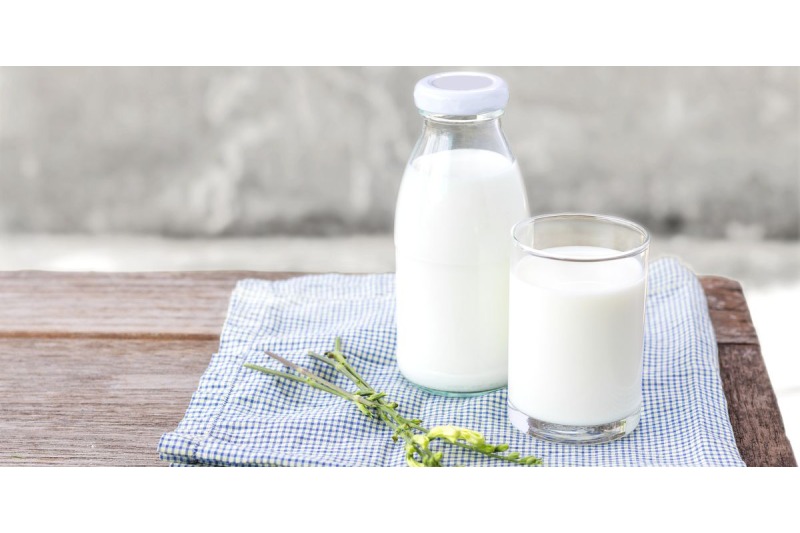D-Vitamin
Vitamin D is one of the most important components in milk.Vitamin D, sometimes called the “sunshine vitamin,” is essential for strong bones. It ensures that your bones stay healthy and strong by assisting the body in absorbing calcium. An adequate intake of vitamin D has been linked to a lower incidence of osteoporosis and fractures in the elderly.
Calcium
Probably the most well-known component in milk is calcium. About 300 mg of calcium, or about 30% of the required daily amount for adults, can be found in a 250 ml cup of milk. For teeth and bones to grow and stay healthy, calcium is necessary. In addition, calcium affects heart health, neuron transmission, and muscle function.
B12 Vitamin
Another excellent source of vitamin B12 is milk; a 250 ml serving contains approximately 1.2 micrograms, or 50% of the daily required consumption. The synthesis of DNA and the maintenance of healthy nerve cells depend on vitamin B12. Additionally, it is important in preventing megaloblastic anemia, which can cause fatigue and weakness in affected individuals. Sufficient quantities of Vitamin B12 are essential for both brain function and energy production.
Riboflavin (Vitamin B2)
Milk also contains riboflavin, also known as vitamin B2, which is present in small amounts (approximately 0.4 milligrams per 250 ml serving). This represents about thirty percent of the daily need. Riboflavin is necessary for metabolic activities because it aids in the conversion of food into energy. Red blood cell formation and skin health are also supported by it. Riboflavin is essential for healthy growth and general wellbeing.
Phosphorus
Together with calcium, phosphorus helps to form strong teeth and bones. Approximately 250 mg of phosphorus, or 20% of the daily required amount, can be found in a 250 ml glass of milk. Phosphorus is essential for generating ATP, your cells’ energy currency, and preserving the body’s acid-base equilibrium in addition to its role in bone health.
Potassium
Another important mineral found in milk is potassium, which provides around 380 milligrams, or 8% of the recommended requirement, in a 250 ml serving. Potassium is essential for sustaining normal blood pressure, lowering the risk of stroke, and promoting the health of muscles. potassium in preventing the negative effects of salt and preserving heart health.
Vitamin A
Approximately 150 micrograms of vitamin A, or 20% of the daily required amount, can be found in a 250 ml glass of milk. Good vision, a strong immune system, and the healthy operation of the heart, lungs, and kidneys are all dependent on vitamin A. For healthy skin and mucous membranes to function as barriers against infections, vitamin A is essential.
Magnesium
Approximately 24 mg of magnesium are included in each 250 ml serving of milk. The body uses magnesium for more than 300 metabolic processes, such as blood glucose balance, muscle and neuron function, protein synthesis, and blood pressure regulation.
Topics #Milk #Minerals #Vitamins











